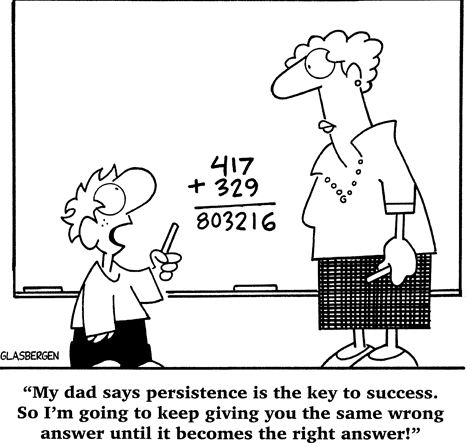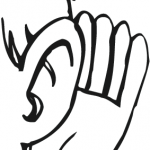by Charles Plant | Jun 2, 2014 | Leadership Development
 I have a friend who considers herself to be a terrible procrastinator and yet she is one of the most productive people I know. If you look up stuff on procrastination online, you’ll get all sorts of information on how bad it is to procrastinate and how you can overcome this horrid tendency in 5 easy steps.
I have a friend who considers herself to be a terrible procrastinator and yet she is one of the most productive people I know. If you look up stuff on procrastination online, you’ll get all sorts of information on how bad it is to procrastinate and how you can overcome this horrid tendency in 5 easy steps.
So if procrastination is so bad, how is it that my friend can be so productive? Maybe we have it all wrong, maybe procrastination is actually a good thing.
First lets look at what procrastination is. Various sites define procrastination as “the practice of carrying out less urgent tasks in preference to more urgent ones, or doing more pleasurable things in place of more pleasurable ones.” It is also defined as “the act or habit of procrastinating, or putting off or delaying especially something requiring immediate attention.” “To postpone or delay needlessly.”
Now this friend of mine fits the bill to a T. If she has something that just has to be done for work and she doesn’t want to do it, she’ll do anything else instead. When she should be working the weekend on a report, she’ll spend the time tidying her place, cleaning, doing errands, laundry, almost anything other than doing the report.
If you notice the definitions of procrastination and the description of my friend’s activities, you’ll notice something interesting. Procrastinators are not people who do nothing, they just happen to do things in an order that would seem to be counter-productive, less important before more important.
And when I look at it that way, procrastination doesn’t seem all that bad. You’re still getting stuff done, just perhaps not in the order that would seem to make sense.
by Charles Plant | May 12, 2014 | Leadership Development
 If you’re an entrepreneur, you’re told that you must be persistent, that persistence will make you successful and I suppose that the same thing is told to many people in developing their careers. But what do you be persistent about?
If you’re an entrepreneur, you’re told that you must be persistent, that persistence will make you successful and I suppose that the same thing is told to many people in developing their careers. But what do you be persistent about?
Many people seem to think that being persistent means doing the same thing over and over again until somebody pays attention to what you’re doing. That, unfortunately, as I have seen recently, is just wrong headed. (Or in my case, pig headed.)
If battering your head against a closed door is being persistent and that won’t work then what things are you supposed to be persistent about? I’ve been trying to come up with a list of four things that entrepreneurs need to be persistent about and here they are:
- Innovating – As an entrepreneur or even as an employee you must be constantly innovating. Being persistent at changing what you’re doing may eventually make you successful.
- Networking – Yes, I know I have mentioned that I hate networking but if you want to find your tribe (thanks Seth Godin) you must be persistent about networking.
- Listening – Networking isn’t about telling your idea, it’s about listening to their problems. Persistent listening will uncover more that you ever find by telling.
- Learning – Finally, if you’re networking and listening then you might learn. It is the persistent learner that then becomes the best innovator and you end up back at the beginning of this list. (Lather, rinse, repeat.)
by Charles Plant | May 5, 2014 | Leadership Development
 So if you are not analytical, how do you make decisions? Are you in fact even conscious of the way you make decisions? I thought not.
So if you are not analytical, how do you make decisions? Are you in fact even conscious of the way you make decisions? I thought not.
I guess we all do it but essentially, if you make decisions using only one way, it means that you’re ignoring different ways you can make decisions. If you’re being analytical, then perhaps you’re ignoring what your emotions say.
Or if you’re making decisions emotionally, then perhaps you’re ignoring any analysis which might be available.
All of the stuff on emotional intelligence would say that you should be conscious of your emotions when making decisions but there is a catch here. To be conscious of your emotions, you must become analytical. And if you’re analytical, it is likely that you do not pay enough attention to your emotions.
And this is where everything breaks down. Most people just are not analytical so by virtue of this, they can’t become emotionally intelligent. Interesting conundrum isn’t it?
To become more emotionally intelligent you must be more analytical. Seems counterintuitive but it really rests at the crux of a lot of problems.
by Charles Plant | Apr 29, 2014 | Leadership Development
 I just read a report that says that analytics is the next big thing in digital marketing. I’ve been listening to James Standen of nModal say this same thing for several years and I’m beginning to see that this might be true, to a point.
I just read a report that says that analytics is the next big thing in digital marketing. I’ve been listening to James Standen of nModal say this same thing for several years and I’m beginning to see that this might be true, to a point.
Overall I don’t think many people are really into analytics. I was talking to several people at a client’s yesterday about some potential analytics for their business and got a lukewarm response.
I went home reminded that while I am REALLY into analytics, not everyone else is. (Yes, I know, there are some of you who are making snide comments because I am an analytics nerd.)
It made me think back to all of the fascinating (well they were to me) analytics based reports I have done in the past. To me they were incredibly mind blowing, strategy altering, and revealing pieces of data with great import. To many who read them though they were a big whoop, not that the information wasn’t new but they just didn’t seem to care.
I have even gone so far on two occasions to start businesses based on new data or on different ways of looking at data and got very spotty market response.
So why is it that people just are not into analytics for the most part. And if they don’t like analysis, how do they get the right information to make decisions?
(And by the way, for those of you who thought you knew where the word analytics comes from you are probably wrong. It is from the Greek “analuein” which is the concatenation of “ana” meaning up and “lysis ” meaning a loosening, ergo: loosening up.)
by Charles Plant | Apr 24, 2014 | Leadership Development
 There appears to be a lot of well meaning advice on how to train someone who doesn’t listen to you to actually listen. Unfortunately, the advice is all very formulaic and I’m not sure it will work.
There appears to be a lot of well meaning advice on how to train someone who doesn’t listen to you to actually listen. Unfortunately, the advice is all very formulaic and I’m not sure it will work.
Having had this problem in the past, I have some degree of experience and frustration on the subject. The problem is that when you try to train someone to listen, you are trying to change their behaviour and that is a hugely complex task.
I first tried all the standard ways of getting them to listen like yelling at them, brow-beating them and stomping my feet but that just turns people off.
I have tried giving people a structured memo pad to write things down on. (I really loved the memo pad but almost no one else did and they resisted using it.)
I have tried getting employees to write down what we agreed on and send it back to me in an email. That too was pretty much a failure as who has the patience to police that type of action?
What I finally decided was that I had to marginalize and eventually get rid of people who don’t listen. You just can’t spend the time necessary to teach them.
Either people are learners who can see a problem and work to improve themselves or they aren’t. If someone is a learner, they’ll figure out what to do if you just tell them what they need to learn.
If they aren’t a learner, there is nothing you can do about it. So give up and get rid of them.
by Charles Plant | Apr 22, 2014 | Leadership Development
 I just discovered that there is an International Listening Association. Who knew? They are a professional organization whose members are dedicated to learning more about the impact listening has on all human activity.
I just discovered that there is an International Listening Association. Who knew? They are a professional organization whose members are dedicated to learning more about the impact listening has on all human activity.
“One advantage of talking to yourself is that you know at least somebody’s listening”. — Franklin P. Jones
While at first I laughed when I heard of their existence, the more I think about it, the more I can see what they might have to offer.
Having had employees in the past who didn’t do what I really wanted done, I wonder if their problem was that they were bad listeners. While the responsibility for communication is in the hands of the sender, if you don’t have an active listener on the other end, you might as well be barking in the wind.
But how do you know whether you’re not explaining something properly, someone is just ignoring you or whether they might really have a problem listening?
And if listening is a skill that can be learned, how do you teach people to be better at it?
 I have a friend who considers herself to be a terrible procrastinator and yet she is one of the most productive people I know. If you look up stuff on procrastination online, you’ll get all sorts of information on how bad it is to procrastinate and how you can overcome this horrid tendency in 5 easy steps.
I have a friend who considers herself to be a terrible procrastinator and yet she is one of the most productive people I know. If you look up stuff on procrastination online, you’ll get all sorts of information on how bad it is to procrastinate and how you can overcome this horrid tendency in 5 easy steps.




